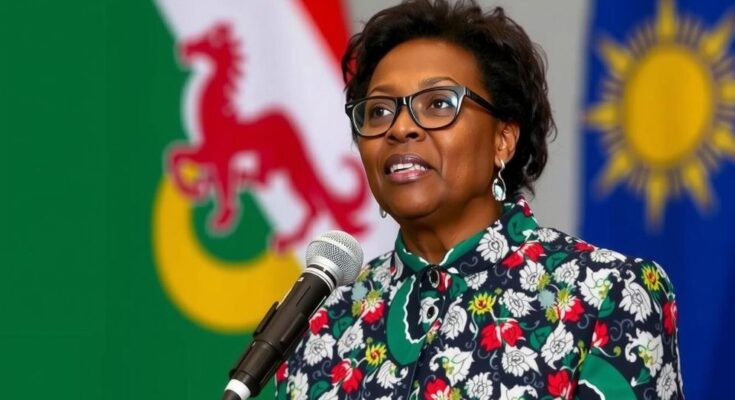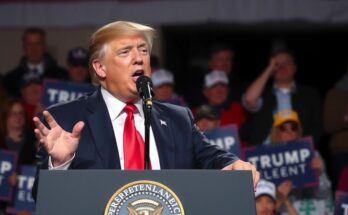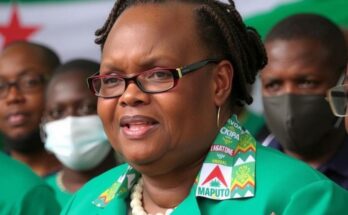Vice President Netumbo Nandi-Ndaitwah of Namibia leads in early election results, but the presidential election is marred by technical issues and opposition complaints. The legality of the extended voting period is being contested, which could affect the integrity of the electoral process. Final results are expected soon, amid calls for legal challenges to the election by opposition parties.
In the recently held presidential elections in Namibia, Vice President Netumbo Nandi-Ndaitwah of the ruling South West Africa People’s Organization (SWAPO) leads in early results, securing approximately 56% of the votes tallied so far. However, the election has faced significant scrutiny due to various technical issues, including a shortage of ballot papers, which prompted an extension of the voting period. This situation has incited claims from opposition parties, who argue that the extension was unlawful and threatens the integrity of the electoral process in Namibia, a country generally regarded as a stable democracy in the southern African region.
The elections, conducted on November 27, 2024, experienced disruptions that resulted in some polling stations remaining open until December 1. Despite Nandi-Ndaitwah’s strong position, the discontent with SWAPO’s governance due to economic hardships and allegations of corruption may overshadow her potential historic victory as Namibia’s first female leader. With the opposition coalition, led by candidates such as Panduleni Itula of the Independent Patriots for Change, asserting their intent to legally contest the election outcomes, the electoral landscape appears contentious. Final election results are anticipated to be finalized within the week, amidst reports that they will likely be challenged in court by opposition parties.
Namibia’s political environment is currently reflective of broader trends seen across the region, where discontent with ruling parties is increasing amidst economic challenges. The opposition leader, McHenry Venaani, emphasized the importance of democracy, proclaiming, “It is about our country, it is about our democratic credentials.” As this election unfolds, the implications of its legitimacy will resonate not only within Namibia but also throughout southern Africa, where numerous political shifts have occurred in recent years.
The presidential elections in Namibia are framed by the historical context of its post-independence democratic development and the long-standing rule of SWAPO. Since becoming independent from South African apartheid in 1990, Namibia has largely maintained a reputation as one of the more stable democracies in the region, contrasting with the turmoil often seen in other southern African countries. However, recent economic difficulties and rising unemployment have prompted dissatisfaction with SWAPO leadership, prompting a backlash from opposition groups. The issues arising from the recent election, such as ballot shortages and complaints from political parties, may indicate a critical juncture for democracy in Namibia. The results could have ramifications for the broader southern African political landscape, given the recent trends of electoral discontent across the region.
In summary, while Vice President Netumbo Nandi-Ndaitwah appears to lead in the presidential election results, the significant technical problems and opposition complaints may undermine the election’s legitimacy. As opposition parties prepare to challenge the results in court, the stability of Namibia’s democracy is at stake. Ultimately, this election is not just a reflection of local politics, but a barometer for the health of democracy throughout southern Africa.
Original Source: apnews.com




